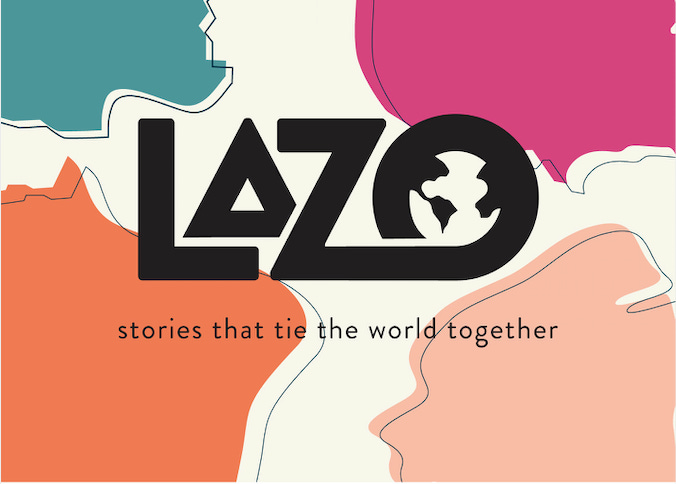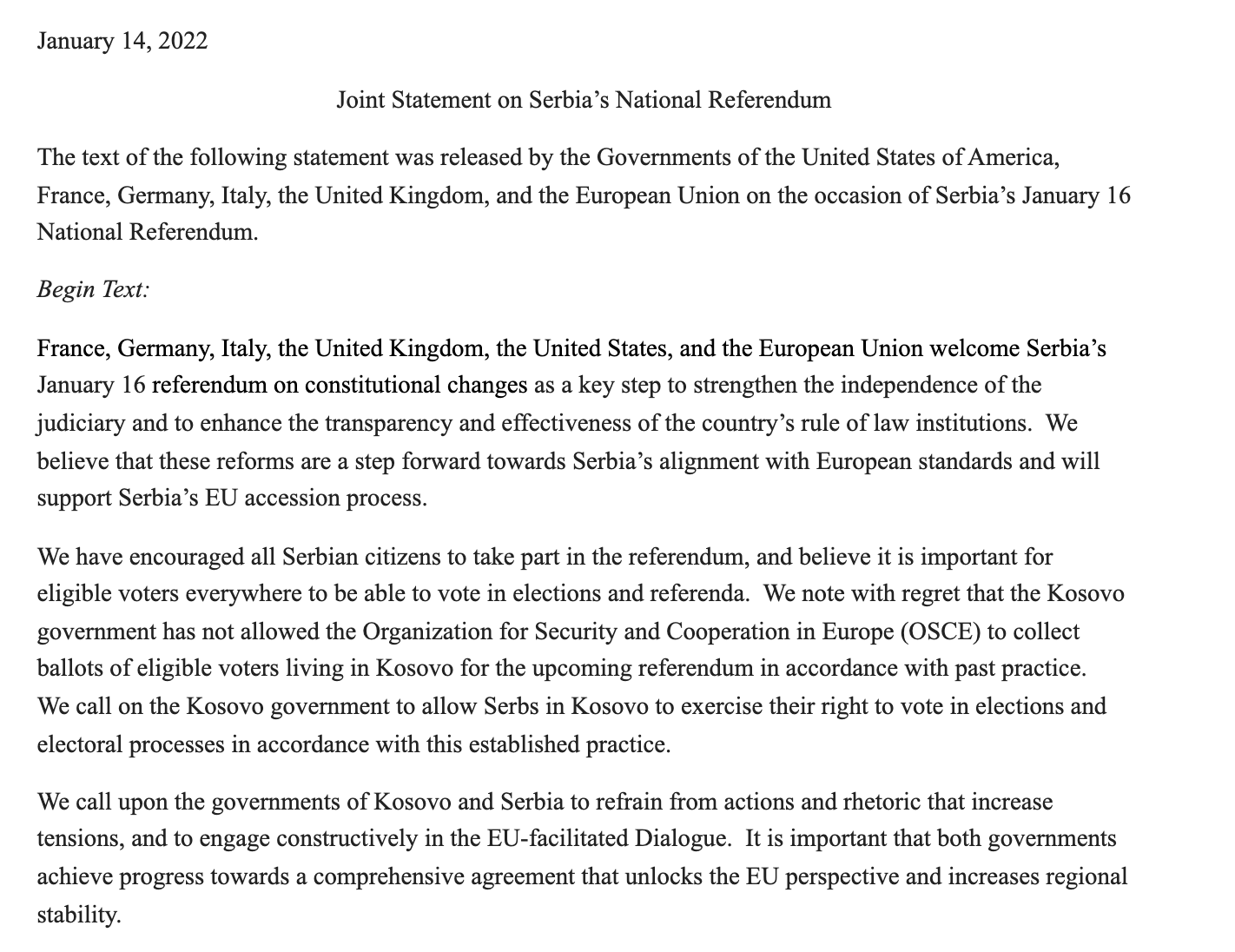How the European Union can fight corruption and put its house in order.
Hello to all the new people! There are a lot of you this week. I'm Cristina, and I write this newsletter to keep you informed about what's going on in the world and to share interesting stories and perspectives from the internationally-minded.
If you enjoy this newsletter, please share it with a friend, share a link on social media, or upgrade to a premium subscription for $2 a month if you can afford it. And please feel free to send story tips or recommendations to: c.maza@protonmail.com.
Upgrade to a premium subscription by Clicking Here.
This week I'm speaking with a 37-year-old Green Party member of the European Parliament, Daniel Freund. He came on my radar after arguing that the European Union's infringement proceedings against Poland don't go far enough. We talked about everything from democratic backsliding in Europe to corruption. Here's what he had to say about how the European Union can put its house in order:
Cristina: You are a relatively new MEP. How long have you been involved in politics, and what made you decide to get involved at the European level?
Daniel: I have always been a political person. Fighting for the things that I believe in: justice, a sustainable future, and the European Union. I joined the Green Party in 2005 while at university as I was deeply impressed by Joschka Fischer’s vision for further European integration.
I come from a border area myself, Aachen, the city of Charlemagne. I went to kindergarten in Belgium, to school in Germany, and met my wife on an Erasmus exchange in Paris. When the European project, which had given me so much, came increasingly under attack by Brexiteers like [former UK Independence Party leader Nigel] Farage and illiberal politicians like [Hungarian Prime Minister] Viktor Orbán, I decided it was time for me to do something. I ran in the European elections in 2019 and was elected to the parliament.
Cristina: When it comes to the European Union's crackdown on democratic backsliding in member states like Hungary and Poland, you have argued that infringement proceedings don't go far enough. Why is that, and what measures would you like to see in their place?
Daniel: The European Union is in a severe crisis. There are several member states where the EU’s treaties are called into question, where independent judges are attacked, where independent journalism almost doesn’t exist anymore, where NGOs and universities are thrown out of the country, and where corruption by the political elites is rampant. Poland and Hungary are the most evident examples. But elements of this exist in several more member states, and the crisis is spreading.
The EU’s answer to this crisis was too little too late. The Commission only launched a so-called Article 7 procedure - for violations of the fundamental values of the Union - when the crisis had reached two countries. But Poland and Hungary promised each other mutual protection, thereby making Article 7 useless because it requires unanimity to work.
Infringements are an important tool to ensure that all member states respect the rules that were jointly agreed upon and that EU law is applied in the same way across the Union. But infringements alone are not going to solve the rule of law crisis. First, Hungary and Poland have over 100 ongoing infringement procedures between them. It’s doubtful that a few more will stop these governments from attacking democracy and the rule of law.
Second, infringements are often too slow. When Hungary kicked out the Central European University, the university went to the European Court of Justice. Two years later, it won on all accounts. Hungary’s actions violated the treaties. But the university had already left Hungary. Infringement was too slow.
The language that is understood by the Polish and Hungarian governments is money. The two countries are the biggest recipients of EU funds. Almost all public investment in new roads or fast Internet is co-funded by the EU. Those who do not play by the rules should not receive EU funds.
The Commission should use the rule of law conditionality and cut EU funds to both countries.
In the regions in Poland that declared themselves “LGBTI free,” we saw that just the threat of withdrawing EU funds made them retract their declarations.
Cristina: Tell me about your plans for the European Parliament's Anti-Corruption Intergroup. What are its goals, and how will it function?
Daniel: Before I was elected to parliament, I led the EU work of the organization Transparency International. I have a lot of experience in the fight against corruption. So I knew that fighting corruption only works when it is coordinated across party lines and borders.
When I came to the parliament, I founded the anti-corruption intergroup. There are now 130 members from 6 political groups working together. It has been very successful in coordinating better legislation, and it is very helpful to hear from colleagues about their experiences and best practice from different member states.
The Biden administration made clear that the fight against corruption and kleptocracy would be one of their priorities. We have already seen Magnitsky sanctions against Bulgarian individuals, for example.
That’s why we’ve decided to join ranks with U.S. politicians in an alliance against kleptocracy. International cooperation and coordination are absolutely crucial in the fight against corruption.
Cristina: What kind of laws would you like to see in place to clamp down on corruption within EU institutions – including problems surrounding revolving door issues – and boost transparency in lobbying and consultancy in the Brussels bubble?
Daniel: The European Union actually has reasonably good laws to deal with different aspects of corruption. Also, with political corruption and lobbying. I would say, let’s start by implementing those rules and using the tools we already have.
There are rules for revolving doors, which is when European Commissioners become lobbyists after leaving office. There is a two-year cooling-off period. At least on paper, because the Commission ignores the rules in practice.
We need independent oversight of the existing rules on lobbying, conflicts of interest, and revolving doors. And sanctions if the rules are broken. That is why I have proposed an independent EU ethics body, and a large majority in parliament has supported my proposal.
We also have a rule of law mechanism to deal with corruption and the rule of law violations, but the Commission refuses to use it, despite being sued by the Parliament. We need to use all tools to fight corruption.
We also need to ensure that institutions that fight fraud, corruption, and mismanagement: the court of auditors, the European prosecutors, the anti-fraud office are well funded and well-staffed.
And we should finally be able to know where EU money is being spent and who gets it.
It might sound bizarre, but the EU spends 160bn euros per year and we don’t know who gets it. We do not know, for example, who the biggest recipient of EU funds is in each member state. That makes it very difficult to track corruption and conflicts of interest.
Cristina: And how do you think MEPs can most effectively combat euro-skepticism in their home countries?
Daniel: Transparency and communication are really important. Always showing and explaining to citizens that we are stronger together. The big challenges of our time: climate change, large companies not paying their taxes, corruption, no country can face them alone. Our only chance is to work together in the European Union.
In my own work, I sometimes expose corruption and mismanagement in the EU institutions. Some might say that could fuel euro-skepticism. But I firmly believe that we need to keep our own house in order.
The EU should lead by example. I think that builds citizens’ trust in the EU.
What I'm writing:
• As the Senate prepared to vote on Senator Ted Cruz's Nord Stream 2 sanctions bill, Democrats introduced their own bill. This alternative provides political cover for Democrats who oppose the pipeline but did not want to vote for Cruz’s bill. On Thursday, Cruz's bill failed to get the 60 votes needed to pass the Senate. But Republicans haven't ruled out introducing yet another bill.
• Days of diplomatic engagement between Russia and the West, which aimed to prevent a full-scale Russian invasion of Ukraine, have borne little fruit as each side made demands the other wouldn't meet. But lawmakers see the meetings as an opportunity to make the U.S. position explicit.
• You can also hear me on National Journal's podcast Quorum Call talking about Nord Stream 2, Kazakhstan, and Novak Đoković.
What I'm reading:
• Authorities in Kazakhstan say that at least 164 people have been killed during the violent protests of the last weeks, the Guardian reports.
• The former head of Kazakhstan’s intelligence agency was arrested on suspicion of treason, the New York Times reports. Karim Masimov is considered a key ally of former president Nursultan Nazarbayev.
• Kazakhstan's protests may have helped mask a post-Nazarbayev purge, World Politics Review reports.
• Kazakhstan’s President Kassym-Jomart Tokayev claimed that the country survived an attempted coup d’état coordinated by what he called “a single center," Reuters reports.
• Russian President Vladimir Putin said that the Collective Security Treaty Organization (CSTO) would not allow its members' governments to be toppled in “color revolutions," Reuters reports.
• Hungary's Foreign Minister Péter Szijjártó posted a video on Facebook saying that his country watched “with concern” news of an attempt to “overthrow the constitutional order” in Kazakhstan. Hungarian Prime Minister Viktor Orbán spoke with Tokayev and offered Kazakhstan assistance, Szijjártó said.
• Russia sent reinforcements into Kazakhstan to help authorities reassert control in the country's biggest cities. The Russian Defense Ministry said it prepared more than 75 transport planes to allow for continuous deployment of troops into the country, the Wall Street Journal reports.
• Internet services returned to Almaty following a five-day blackout, but a state of emergency and a nationwide curfew remain in place, the BBC reports.
• China's Foreign Ministry said the country is willing to increase “law enforcement and security” cooperation with Kazakhstan and help oppose interference by “external forces," Reuters reports.
• The U.S. has information indicating that Russia prepositioned a group of operatives to conduct a false-flag operation in eastern Ukraine in an attempt to create a pretext for an invasion, a U.S. official told CNN. "The official said the U.S. has evidence that the operatives are trained in urban warfare and in using explosives to carry out acts of sabotage against Russia's own proxy forces," the article reads.
• Russia refused to rule out sending military deployments to Cuba and Venezuela if it is unable to get its security demands from the U.S. The Guardian reports on Russian Deputy Foreign Minister Ryabkov's comments.
• Ukraine was hit by a massive cyber-attack, and the websites of several Ukrainian government departments, including the ministry of foreign affairs and the state treasury, were taken down, Luke Harding reports for the Guardian.
• Ukraine’s security service said that it detained a Russian military intelligence agent accused of planning an attack on the port of Odesa, Reuters reports.
• A Ukrainian court froze the assets of former President Petro Poroshenko, DW reports. Ukraine’s State Investigation Bureau accused Poroshenko of helping Russian-backed separatists in the Donbas sell $54 billion in coal to Kyiv and working with oligarch Viktor Medvedchuk, one of Russian President Vladimir Putin’s closest allies in Ukraine.
• Russian politician and activist Vladimir Kara-Murza accused Serbia's Interior Minister Aleksandar Vulin of giving Russian intelligence chief Nikolai Patrushev the transcripts of a wiretapped Russian opposition meeting held in Belgrade, Balkan Insight reports. Now Vulin says he's going to sue Kara-Murza.
• Lithuania paid more than $110,000 to a man named Abu Zubaydah for allowing the CIA to hold him in a secret site outside Vilnius where he was tortured, the Guardian reports.
• The head of Denmark’s foreign intelligence service, Lars Findsen, has been in prison for more than a month for allegedly leaking classified information, CNN reports.
• A top military chief in Sweden confirmed there is increased Russian activity in the Baltic Sea which “deviates from the normal picture," the Associated Press reports.
• European Union defense and foreign ministers gathered in Brest, France, to discuss the “Strategic Compass," the bloc's most recent attempt to create a united defense strategy. According to Politico Europe's Playbook, the latest draft of the roadmap reads: “It is our core interest to support Bosnia and Herzegovina as a single, united, and sovereign country and take forward the EU-led Pristina-Belgrade dialogue.”
• An elderly Palestinian American died of a heart attack after being detained by Israeli troops in a village near Ramallah in the occupied West Bank. The U.S. government is calling for an investigation, the New York Times reports.
• The Biden administration’s lawyers are arguing in federal court that migrant families separated at the border are not entitled to financial damages. That's happening despite President Biden saying the families deserve compensation, the Washington Post reports.
• The U.K. intelligence service MI5 issued a warning that an alleged Chinese agent is seeking to interfere with U.K. politics by infiltrating parliament and giving donations to politicians, the BBC reports.
• Haitian Prime Minister Ariel Henry maintained communication with a prime suspect in the assassination of Haitian President Jovenel Moïse, according to new evidence reported on by the New York Times.
• El Salvador’s leading news outlet, El Faro, announced that the phones of most of its employees were hacked using the Israeli firm NSO Group's Pegasus spyware, the New York Times reports. Human rights activists and reporters from other outlets were also targeted with the spyware, according to the Washington Post.
• A military court in Myanmar sentenced ousted civilian leader Aung San Suu Kyi to a four-year jail sentence for various offenses, including illegally importing and owning walkie-talkies, the Guardian reports.
• North Korea has been launching a lot of ballistic missiles lately. And the U.S.’s early warning systems initially suggested that one missile test this week could hit the U.S. mainland, CNN reports.
• The Economic Community of West African States (ECOWAS) closed its borders and ceased trade with Mali in response to the military leaders delaying presidential and legislative elections until 2026, the Washington Post reports.
What the State Department says:
Upgrade to a premium subscription by Clicking Here.
You can also contact me for any reason by writing to c.maza@protonmail.com.








